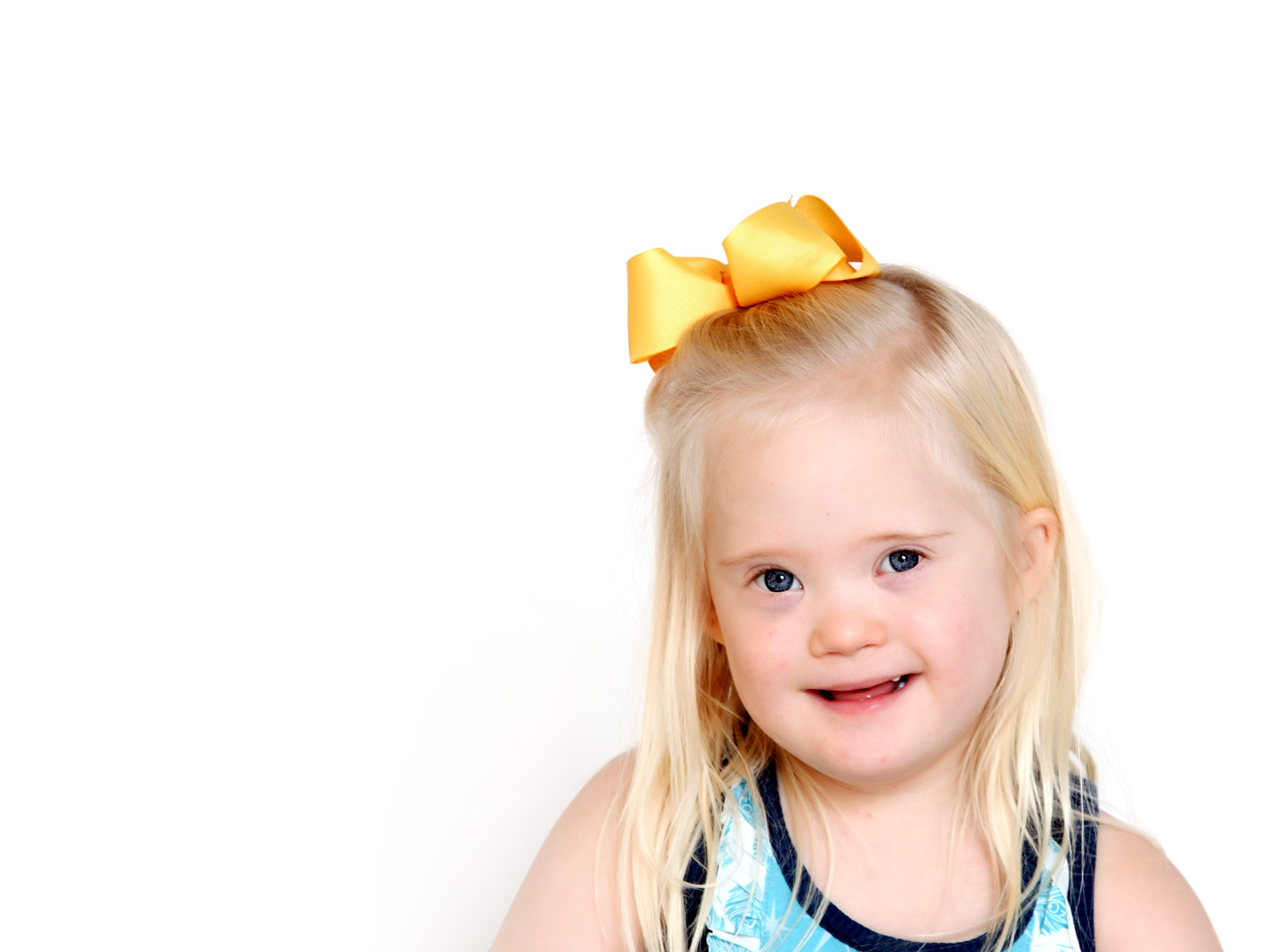Speech and Language
Speech & Language for Infants, Toddlers & Young Children
Speech and language present many challenges for children with Down syndrome, but there is information that can help infants and toddlers begin learning to communicate and help young children progress in speech and language.
Although most children with Down syndrome learn to speak and will use speech as their primary means of communication, they will understand language and have the desire to communicate well before they are able to speak. Total communication, using sign language, pictures, and/or electronic synthesized speech can serve as a transitional communication system.
Are hearing problems common in children with Down syndrome?
Ear infections occur frequently in infancy and early childhood in all children. But, because of anatomic differences in the ears of children with Down syndrome (narrow and short canals), they are more susceptible to accumulations of fluid behind the eardrum. This is known as Otitis Media with Effusion (OME). These problems result from fluid retention and inflammation in the middle ear; sometimes with infection. The presence of fluid makes it more difficult for the child to hear, resulting in fluctuating conductive hearing loss.
Children should be followed by their pediatrician and otolaryngologist (ENT) and visit an audiologist for auditory testing. This testing can be done soon after birth. Hearing testing should also be done every six months until three years of age and annually through age 12 years. Treatment usually involves either an antibiotic regimen or the insertion of tubes to drain the fluid. These recommendations follow the schedule found in the Down Syndrome Health Care Guidelines.
What effect does hearing loss have on speech and language development?
Speech and language are learned through hearing, vision and touch. Hearing is very important to speech, and studies have shown that speech and language development are negatively affected by chronic fluid accumulation. Children with Down syndrome often have fluctuating hearing loss due to the frequency of fluid accumulation. When fluid is present, hearing is affected; as fluid drains, hearing improves.
When children do not consistently hear well, it is difficult for them to learn how sounds and events are related, e.g. the ring of the telephone or someone calling them. It is important for parents to ensure that their child is hearing well. Pediatricians and otolaryngologists have great success in treating fluid accumulation, but treatment requires close monitoring.
How is feeding related to speech and language?
Speech is a secondary function that uses the same anatomic structures used for feeding and respiration. Low muscle tone (hypotonia) affects feeding and will also affect speech. In feeding, children gain practice with strengthening and coordinating the muscles that will be used for speech. If a child has difficulty feeding, it is important that his or her parents seek guidance from a feeding specialist (a speech-language pathologist or occupational therapist who has advanced training). Feeding therapy can to help strengthen the oral muscles, which in turn can have a positive effect on speech.
What other skills are related to speech and language development?
Other important pre-speech and pre-language skills are the ability to imitate and echo sounds; turn-taking skills (learned through games such as peek-a-boo); visual skills (looking at speakers and objects); auditory skills (listening to music, speech, and speech sounds for lengthening periods of time); tactile skills (learning about touch, exploring objects in the mouth); oral motor skills (using the tongue, moving the lips); and cognitive skills (understanding object permanence and cause and effect relationships). The family can stimulate these pre-speech and language skills at home. Parents can contact Child Find (a federal program that identifies the needs of children with disabilities) in their area and ask for speech-language pathology (SLP) services for their child. SLP can help parents learn the skills that they need to help their child begin learning language and using speech.
When will my child say his first word?
Children with Down syndrome frequently begin to use single words between the ages of two and three, but the age of the first word varies. Also, the first true word may be signed, not spoken. Most children with Down syndrome communicate from birth through crying, looking and gesturing. They have the desire to communicate and learn that crying or making sounds can affect their environment and bring them help, play, and attention.
Many children with Down syndrome understand the relationship between a word and a concept by 10-12 months of age. However, at that age, a child generally does not have sufficient neurological and motor skills developed to be able to speak. That’s why it is important to provide another system so that the child can communicate and learn language before they are able to speak.
What is total communication?
Total communication (TC) is the combined use of signs and gestures with speech to teach language. Total communication provides a child with an output system to communicate when he or she has not yet developed the skills needed for speech. In total communication, adults use sign and speech when talking with the child. The child learns signs in conjunction with speech and uses the signs to communicate. Sign language is a transitional system for children with Down syndrome. Other choices for transitional communication systems are pictures used on a communication board or in a communication exchange system and/or electronic communication systems which use synthesized speech.
Most children with Down syndrome are ready to use a language system many months or even several years before they are able to use speech effectively to communicate. Therefore, a transitional communication system such as sign language, pictures or synthesized voice is frequently needed. A speech-language pathologist and/ or augmentative communication specialist (AAC) can help design a transitional communication system for your child. Most children with Down syndrome will use speech as their primary system for communication.
If your child has Down syndrome and is experiencing speech and language issues, please visit our treatment page or contact us for help.

